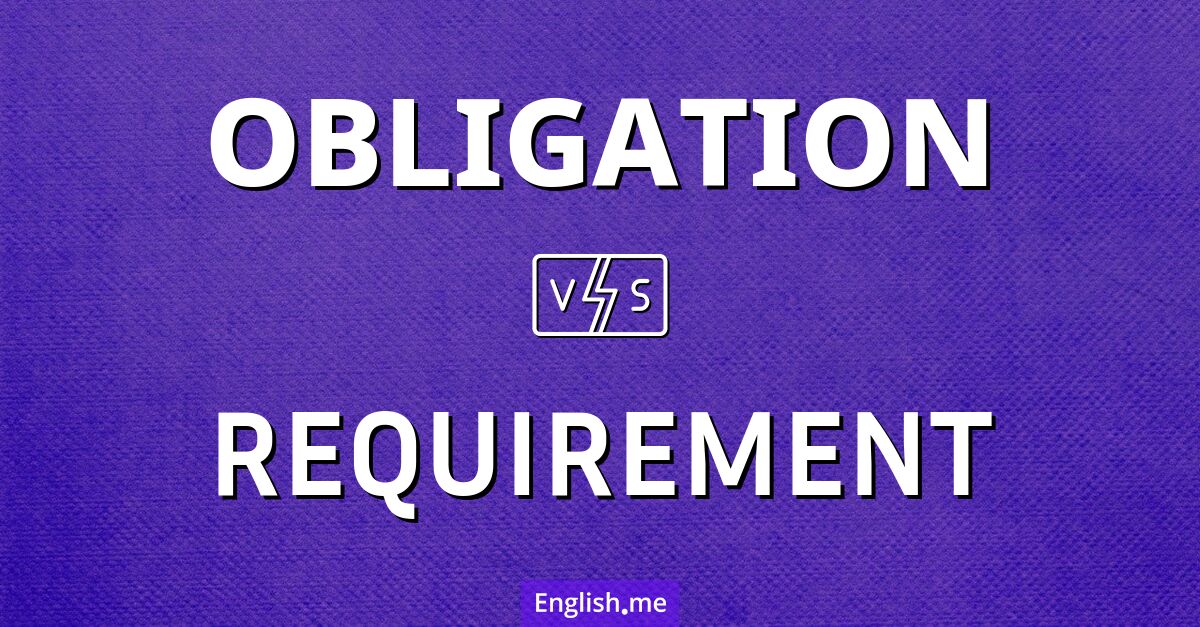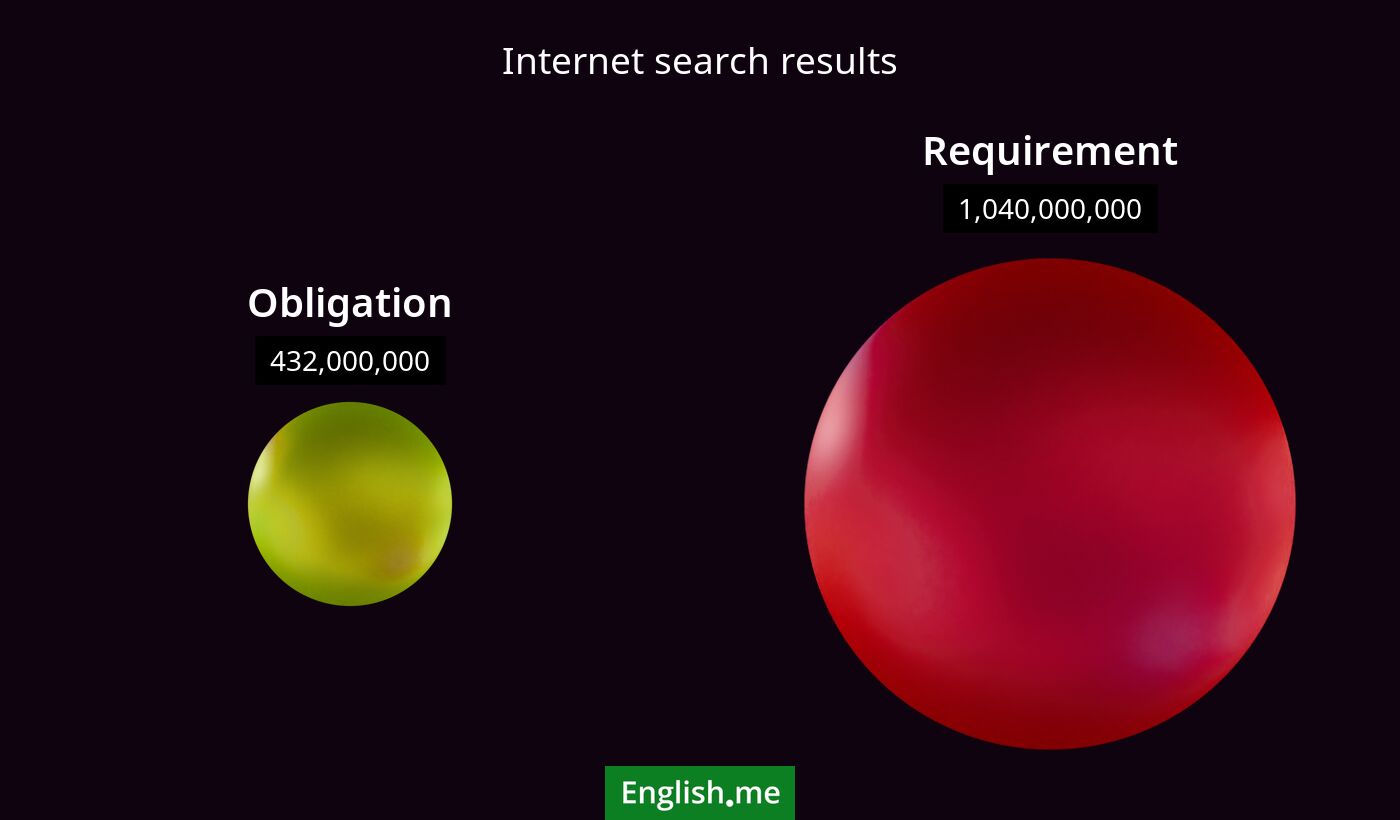"Obligation" vs. "requirement": when words get demanding!
Reviewed and edited by  Lloyd Cooper 10/10/2024, 22:23
Lloyd Cooper 10/10/2024, 22:23
English.me team member

 What is similar?
What is similar?
Both "obligation" and "requirement" refer to something that must be done. They both imply a necessity or duty that a person or entity is bound to fulfill.
 What is different?
What is different?
An "obligation" often has a moral, legal, or social aspect, implying a duty or responsibility that might not always be written or enforced by rules. A "requirement" is often seen as a condition that must be met, typically defined by rules, standards, or specific criteria.
 Which one is more common?
Which one is more common?

 Examples of usage
Examples of usage
Obligation- He felt a strong obligation to help his family during the crisis.
- There is a legal obligation to report any large financial transactions.
- She considered it an obligation to attend the meeting, although she didn't want to.
- A degree in computer science is a requirement for the job.
- Meeting the safety standards is a requirement for product approval.
- There are strict requirements for obtaining a driver's license.

 English
English español
español française
française italiano
italiano deutsche
deutsche 日本語
日本語 polski
polski česky
česky svenska
svenska Türkçe
Türkçe Nederlands
Nederlands